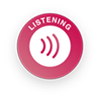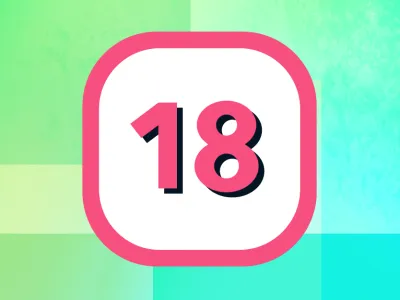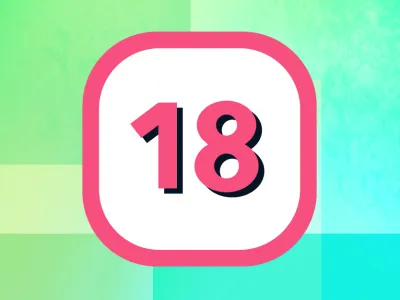
Your Questions, Answered: Finances
Include this article in your Skills Builder Journal. It could help you develop... 


This month, we teamed up with MyBnk - a charity who help young people take control of their finances - to answer all of your money questions. We put together a list of the top questions you asked and sent them over for their response. Here’s what they had to say…
What is a credit score and how do I get a new one?
A credit score is a measure of how trustworthy you are when it comes to borrowing money or services.
Before you turn 18, your file will not contain any information and therefore won’t be great at proving your trustworthiness. Once you turn 18 and you start paying bills, taking out, borrowing or some other factors, your file will build. If you miss payments, owe too much money or show you are not handling your debt well, your score goes down. If you pay on time, manage it well and show you are trustworthy, the score goes up.
How do I increase my score?
- Know what it is - You can sign up to a range of services to check your score (Experian, Credit Karma and Clear Score) but remember each one uses their own scoring system
- Register to vote – This alone is usually by enough to get a phone contract
- Bills – If you have bills in your name it will affect your score - positively if paid on time, negatively if late. Think about phone contracts, water, etc. They all count
How much do employers put into a pension?
With workplace pensions- ones you are automatically put in when you work somewhere- employers need to contribute at least 3% of your annual salary. The minimum you pay is 4% and this is topped up by 1% from the government in tax-relief. This means 8% of your salary will go into your pension pot.
This set up is called auto-enrolment, you can opt out if you want and keep that 4%, but by sticking with it your savings are effectively doubled!
You can open a private pension yourself as well – but your employer doesn’t need to contribute anything. It’s only the workplace pension schemes where employers have to contribute.
What does it mean when you are in debt?
Being in debt is when you owe money to someone – whether that’s a person or company. There’s no limit to what ‘makes a debt’, you could be 10p in your overdraft or a million pounds in, it’s still a debt.
Being in debt can be stressful if you don’t manage it well, but there are ways that debt can help your situation.
Is there such a thing as good debt?
Not all debt is bad.
Bad debts are ones that will cost you more money in the future, whether that’s extra fees, lost value or more interest to pay. Owing your credit card company and car finance are two good examples of this.
Good debts are debts that improve your finances in the future. For example along with a student loan, you get an education which increases your earning potential. When you take out a mortgage, you could get money back in the future if you want to sell, as houses tend to go up in value. Or if you take out a business loan, because you are using the money to make more. It could even be a means to an end, say you needed a car loan so you could do your job.
What happens when you go into an overdraft?
An overdraft is when your bank account balance goes below zero. Usually you will agree to an overdraft with your bank to a specific limit with certain terms.
It should only be possible to have an overdraft on current accounts, not savings. Also - basic bank accounts shouldn’t allow you to go into an overdraft at all.
If you do find you are overdrawn, you should remember that any money that goes into your account will first go to clearing your overdraft. For example, if you have minus £30 in your account and you put £100 in, you are only going to be left with £70. That doesn’t include the fees charged at most banks – usually a rate of 40% a year. These fees are because of the terms of the overdraft you have ‘arranged’ with the bank.
An overdraft is unlikely to have a major impact on your credit score as long as you don't go beyond your limit or have payments refused. In fact, if you use your overdraft sensibly and regularly pay it off it could actually improve your credit rating.
What is a mortgage, and how does it work?
In basic terms, a mortgage is a large loan to purchase a house.
If you want to buy a £250,000 house and you don’t have that much saved up, you can apply for a mortgage from the bank to pay for it upfront. You then pay the bank back each month.
Usually, a bank will require you to prove your earnings and complete a detailed budget, as well as having a 20% deposit saved up – this is 20% of the cost of the house you are trying to buy, in the case of above, £50,000.
So you need to save £50k, ask the bank to borrow another 200k and THEN, you need to pay back to the bank. A mortgage is a secured loan – the borrowing is attached to the house meaning there are consequences if you don’t pay.
If you DON’T pay, the bank will take the house from you – this is called a repossession and you will lose the property and will not be refunded any money you already paid in.
What are taxes and how do they work?
Taxes are deductions taken from people and businesses to pay for things everyone needs. They are collected by both the central and local government.
The UK, like most countries, has lots of different taxes but the one most will be familiar with is income tax - the tax that is taken whenever you earn money.
We have something called a “progressive” tax system which means the more you earn, the more you pay. This means those with more income end up paying the most tax and this helps pay for education, health, defence, benefits, housing and loads more. It’s a way of redistributing wealth.
Other taxes you might pay are:
- Value Added Tax (VAT) – 20% on all the non-essential things we buy. This is included in the price we see on the shop shelf. So we buy a £1 bag of sweets, 20p of that is VAT that goes to the government.
- Inheritance Tax – 40% of any inheritance over £325,000.
- Council Tax – An annual charge per household that pays for local services like bin collections, libraries and leisure centres.
What is the difference between an ISA account and a LISA account?
An ISA is an Individual Savings Account, a type of savings account that does not charge tax on the interest your bank pays you every year. You can put in up to £20,000 a year and is a great way to save money in the long term.
A LISA or Lifetime Individual Savings Account, is a specific ISA designed to help you buy your first home. You must be 18 or over but under 40 to open one. You can put in up to £4,000 each year, until you’re 50. You must make your first payment into your ISA before you’re 40. The government will add a 25% bonus to your savings, up to a maximum of £1,000 per year.
However, there are penalties if you take your money out early. Make sure you check if it’s right for you in terms of cash flow and your future plans.
I see so many people using services like Klarna, what happens if you don’t make the payments?
Klarna is a credit provider so not paying the bills means that your credit score may be affected.
If your debt is unpaid for a considerable length of time, Klarna will sell your debt to a debt collection agency and then you’ll owe more money and have a damaged credit score. This can go as far as a CCJ, a county court judgement, which would last on your file for six years and hinder any plans to borrow in the future. Klarna, and indeed any debt, should only ever be used by people who have the means to repay it. Do the maths before you hit buy.
Should I keep an emergency fund? If so, how much?
If you have the means to have an emergency fund, it’s a great idea.
It’s different for everyone but a general rule is to try and have enough money saved to survive for three to six months. This should be long enough for you to find a new job or get a benefits claim sorted.
That being said, anything is better than nothing. Plan it. If you are about to move out, think about saving to cover those costs so it isn’t a massive shock at the start. If your finances are so tight you can’t afford to save, revisit your budgets frequently to keep track of your situation.
You shouldn’t be saving up an emergency fund if you have interest bearing debts. It is generally better to pay off debts that are costing you money first. The interest they charge you is a lot higher than the interest the banks will give you for saving. Once the debts are clear, then consider a savings goal.
Do I need a credit card or can I just use debit cards?
There are VERY few reasons to ever need a credit card as opposed to a debit card. There are some scenarios where you may need one, for example there are some countries that require one to check you into a hotel or to hold a large payment such as a deposit for renting a car.
However, in the UK, debit cards are accepted pretty much everywhere a credit card is. Remember that a credit card is a source of borrowing so if you don’t NEED to borrow, debit cards are a better bet.
Credit cards do have some perks – using one and paying on time will help your credit score. Also, if you spend £100-£30,000 in a single transaction, you can receive a refund if the goods or services were defective or fraudulent. This is called Section 75 protection.
What is cryptocurrency?
Cryptocurrency is a term for monetary systems that don’t rely on cash but instead use digital tokens or ‘coins’ as a store of value. Bitcoin is probably the most famous one, but there’s a lot of different types out there. We just published a piece all about it – you can find it here!
There’s so many different savings accounts at my bank - how do I know which one to use?
Your best bet is to think about what you will use the account for and tell the bank’s personal advisors about your situation. They may be able to advise a better alternative product like an ISA, LISA or something else altogether.
Look for the AER rate, this is the amount of interest the bank will pay you per year based on your savings. Rates are low right now, but the higher the AER, the more free money you will get from the bank every year. Some banks, like Starling even pay this monthly.
Some saving accounts will have limits on how often you can access money or rules about when you can withdraw cash – be sure you check if the account you are interested in has any restrictions before you sign on the dotted line.
How does interest work?
It’s the cost added to an amount of money you have borrowed, or the reward added to an amount of money you have saved.
Interest is always given as a percentage over 12 months, and there’s two you should know about:
- Annual Percentage Rate (APR) – Is what borrowers will add on top of whatever you owe.
- Annual Percentage Rate (AER) – The extra banks will give you for keeping your money with them.
You want APR to be LOW and AER to be HIGH.
I’m saving for my first car. How should I go about finding value for money when buying and getting the best deal?
Firstly, finding the best deal for anything means investing the time to do the research. If you know what sort of car you want, start looking at what different suppliers have to offer.
When it comes to cars, a lot of people focus on the mileage but service history can be more important – a well looked after car with lots of miles could be better for you than a low mileage car with lots of electrical problems.
Also, be aware of your buying options. Are you going to pay cash or take out finance? Finance might mean you can have a car now that’s more expensive than you can afford – it will cost more in the long run and include other terms and conditions.
Be sure BEFORE you pay for the car you have checked that an insurance company will actually insure you and shop around on comparison sites for the best deal.
Lastly, know that while a new car is a lovely thing, as soon as you drive it off the lot it starts to lose value. After a year most new cars lose up to 40% of their value, and this increases to 60% by the end of year three. A second hand car from a reputable dealer is definitely an option to consider.
What’s the best way to save money?
Whatever works as long as you stick to it. Save regularly and it will become the healthiest habit you ever had.
For some people saving is easiest when you get paid. You “pay yourself” first by moving some into your savings, then use the rest as normal. Of course, you need willpower to not dip into your savings.
Some people prefer more ad-hoc saving when they can. A coin tin might sound like kids’ stuff but it is actually a great way to make the small change in your pocket add up to a meaningful amount.
Try an automatic savings app. Many banks and services allow for “round-up” saving. This means if you pay 99p for something in a shop with your bank card, the bank will round up to £1, and put the 1p in a savings account. This is great as you do it without thinking too much about it.
Lastly, you might want to consider the 1p saving challenge: You start by saving 1p on day one, then 2p on day two and so on for a year. Do it up to £3.65 on the last day you’ll have saved £667.95.
If you’d like help to take control of your finances visit MyBnk’s YP Zone for tools, videos, chatbots, e-learning courses and guides. Fresh items include a saving text message service and a special course on becoming financially independent at university covering banking, borrowing, budgeting and spending. Developed with The Mix and Money and Pensions Service.




